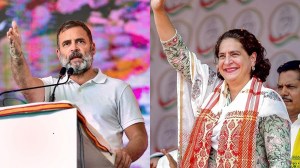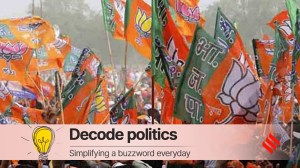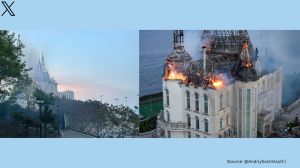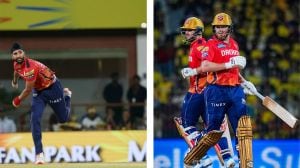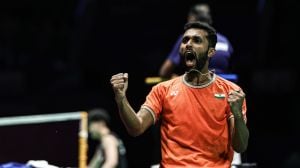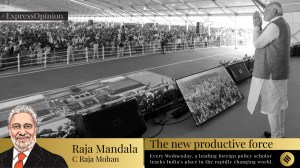- India
- International
NSA Doval at Goa maritime conclave: Seas, space, cyber ‘biggest opportunity’ and ‘serious threat’
Doval said that “mutual co-operation” is designed to complement neighbouring countries’ maritime security strength, but it should not be seen directed against any specific country.
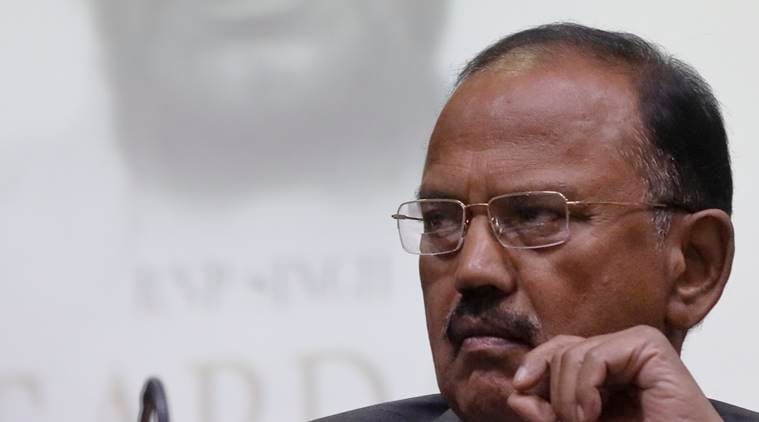 Doval identified seas, space and cyber as the three areas which are going to “afford the biggest opportunity as also present the most serious threat” to the nation’s security. (File)
Doval identified seas, space and cyber as the three areas which are going to “afford the biggest opportunity as also present the most serious threat” to the nation’s security. (File)
National Security Advisor (NSA) Ajit Doval Friday identified seas, space and cyber as the three areas that are going to “afford the biggest opportunity as well as present the most serious threat” to the nation’s security. He was giving the inaugural speech at the Goa Maritime Conclave in Panjim.
Emphasising that India is interested in “seeing peace in the region”, Doval reaffirmed the country’s stand in seeking “rule of law” and an “engagement on predictable terms”. He further said that “mutual co-operation” is designed to complement neighbouring countries’ maritime security strength, but it should not be seen directed against any specific country.
“We consider anything that is good for one country is going to contribute to the wellness of the rest. But most important is one more aspect which I would like to underline, that we are not part of any alliance. Our co-operation is not directed against any country. Our co-operation is truly intended and focussed on bringing about a change that will only add towards the prosperity of each country and the region,” the NSA said.
Doval also spoke on the operational capabilities which India has built and will make available to all the neighbours and countries in South Asian and Pacific regions. He stressed that the need of the hour is to continuously design infrastructure and research-backed intelligence, to tackle new threats arising from the seas, and ensure resource constraints are resolved by argument instead of duplicating capabilities.
Doval took the opportunity to highlight the network of research and science-backed data centers that India has built to track events in the Indian Ocean as an advance warning system and the country’s long-range identification and vehicle tracking ability. “We would like our neighbours to draw upon considering it as their own facility and rather than duplicating it, we can augment it further by cooperation,” he added.

Indian Navy chief Admiral Karambir Singh, who was also present at the event, spoke about climate change and rising sea levels apart from traditional threats, urging regions to work together. “Climate change, rising sea levels, natural calamities pose clear and present dangers. Maritime terror, drug smuggling IUU (illegal unreported unregulated) fishing, poaching, trafficking, etc, have increasingly occupied navies across the region,” Singh said while addressing the conclave.
“Thirdly, there is a recognition that no one nation can do it all alone. The vastness of the oceans is only contradicted by the inadequacy of our individual resources. No entity can single-handedly requisition the full scale of assets, economics and expertise to tackle the gamut of challenges faced. This is also crucial, given the transnational nature of threats,” he added.
Continuing to speak on climate change, he stated: “You know that Maldives and Bangladesh are very very vulnerable to seawater level rise. They are very much part of this issue. They are very keen that we all operate together. We are also looking at a standard operating procedure, so if a disaster takes place in one country all the Navies of the neighbouring countries join together, they know how to operate together and pool the resources to help. It is finding a lot of traction. SOPs already exist. We just have to practice them on a regular basis so that we fine-tune the SOP to make it workable. I am not linking it to any politics on land. Inherently in the Indian Ocean, there are common challenges. This is what we really want to tackle.”
Singh further said, “The Indian Navy is looking forward to the central government to take a decision on a third aircraft carrier. If you see the blueprint of the 1950s, it was built on three aircraft carriers, so that two aircraft carriers are always available when one is under repairs. We are very much looking forward to the government taking a decision on the third aircraft carrier.”
The two-day conclave has maritime and naval heads from ten Navies in the Indian Ocean and Pacific region including Maldives, Sri Lanka, Bangladesh, Myanmar, Thailand, Indonesia, Seychelles, Mauritius, Singapore and Malaysia in attendance.
May 01: Latest News
- 01
- 02
- 03
- 04
- 05







